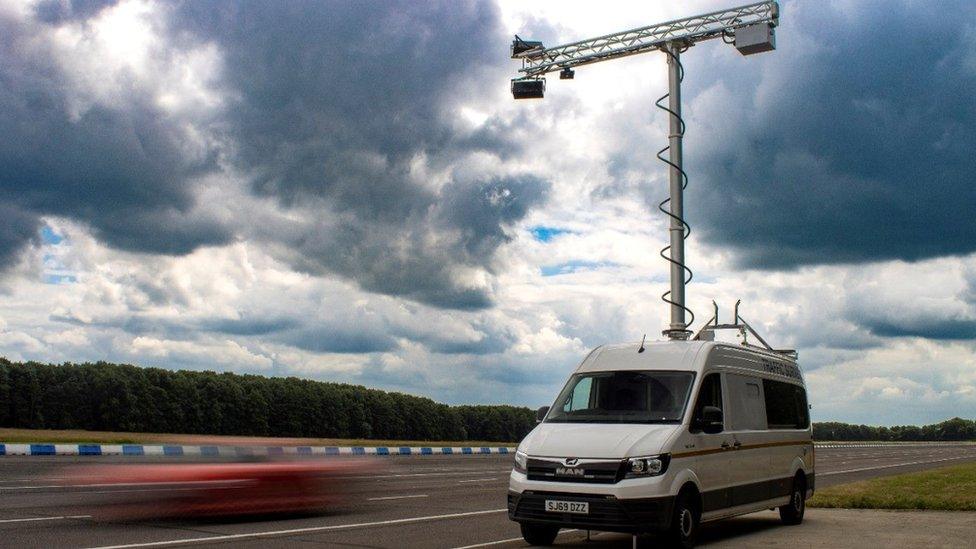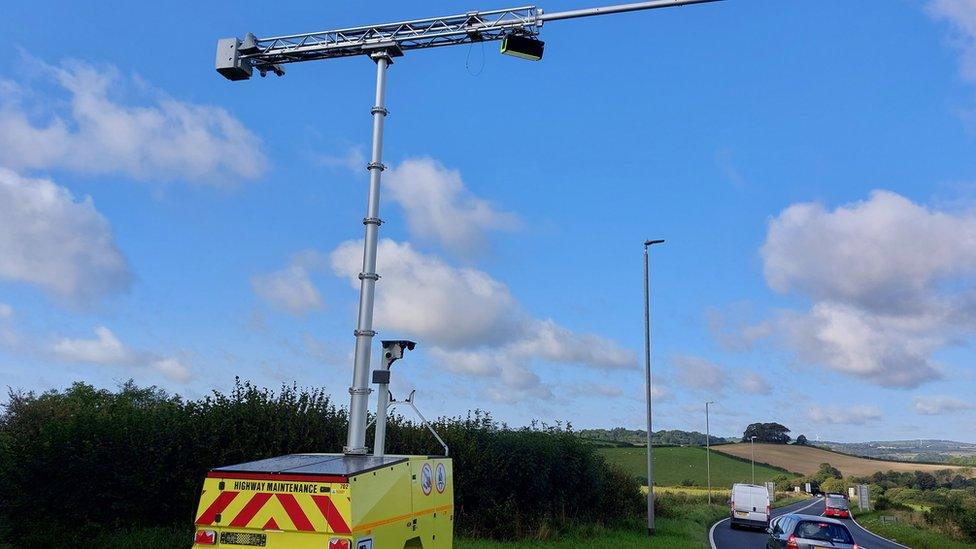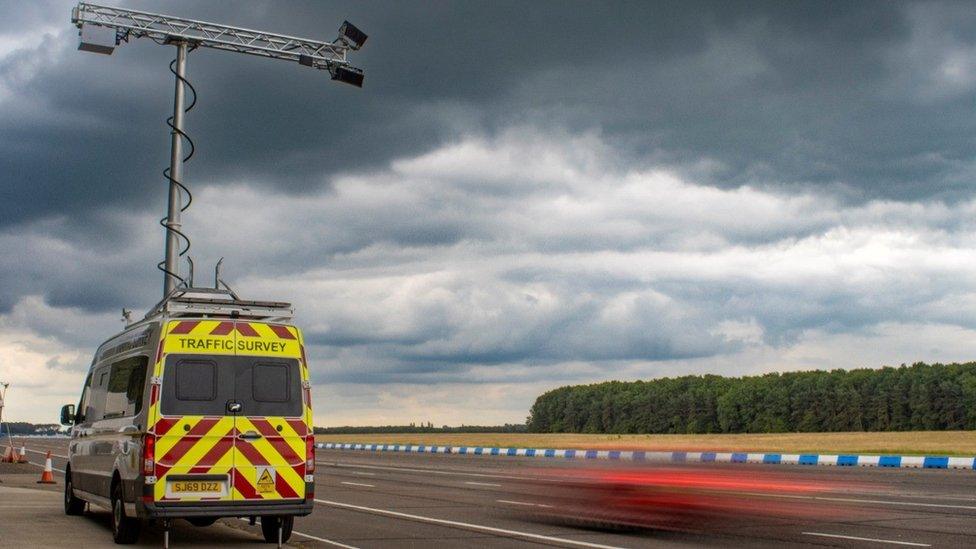AI tech to spot drivers on phone gets rollout boost
- Published
- comments

More police forces are to join a trial scheme that uses AI to detect whether motorists are using mobile phones or not wearing seatbelts while driving.
The safety project started in 2021 as a partnership between Warwickshire Police and National Highways.
Now 10 more forces in England are to use the technology mounted to a vehicle that takes multiple images of drivers.
The images are then passed to police for consideration on whether any action is to be taken against offenders.
The police forces taking part in the trial are Durham, Greater Manchester Police, Humberside, Staffordshire, West Mercia, Northamptonshire, Wiltshire, Norfolk, Thames Valley Police and Sussex.
In the scheme's earliest phase, which ran for three months, the monitoring vehicle was stationary at the side of the road while in use.
National Highways said the operation was being extended to learn more about the technology with a possible future roll-out nationwide.
It added there were plans for the technology to be fixed to gantries for the first time, giving an unobscured view of lanes.
The trial began on 19 February. It runs until March 2025.

Under the scheme, drivers would receive warning letters from the police reminding them that they face fines of up to £500 for not wearing a seatbelt, with penalty points and potential £1,000 fines for those using a phone in a non hands-free capacity.
Matt Staton, National Highways' head of national road-user safety, said: "We know that distracted driving and not wearing seatbelts were key factors in a high number of incidents that resulted in people being killed or seriously injured.
"Working with our police partners we want to reduce such dangerous driving and reduce the risks posed to both the drivers and other people. We believe that using technology like this will make people seriously consider their driving behaviour."
National Highways is working with Acusensus which is behind the technology.
Geoff Collins, Acusensus' UK general manager, added: "We have found this technology really does change driver behaviour.
"In New South Wales (Australia), where we first used the technology, the number of mobile phone detections have dropped by a factor of six, from 1 in 82 drivers spotted holding a phone in 2019 to 1 in 478 drivers in 2021 and 1 in every 534 in 2023.
"We expect to deliver similarly dramatic results here in the UK."

Follow BBC West Midlands on Facebook, external, X, external and Instagram, external. Send your story ideas to: newsonline.westmidlands@bbc.co.uk, external
- Published29 July 2022

- Published22 July 2022
